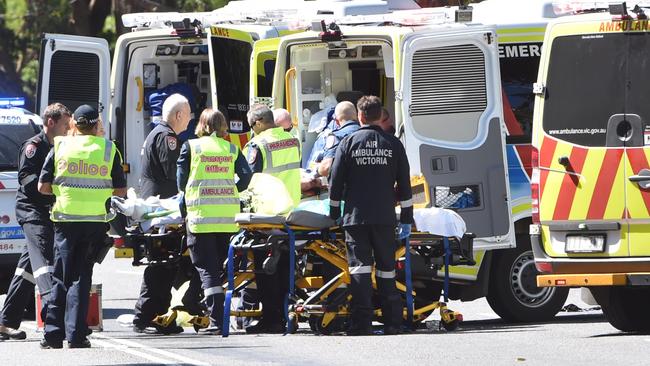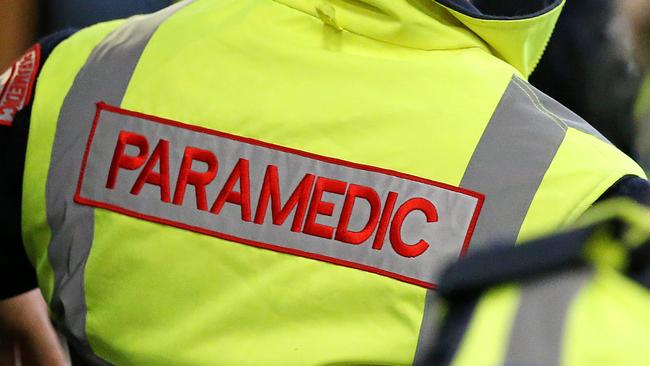Ambulance Victoria builds new system to ’predict’ emergencies
Traffic data, weather forecasts and patient records will be combined to help Ambulance Victoria paramedics predict future emergencies and slash response times under a futuristic new system.
VIC News
Don't miss out on the headlines from VIC News. Followed categories will be added to My News.
Traffic data, weather forecasts and patient records will be combined to help paramedics predict emergencies and slash response times.
Ambulance Victoria is building a hi-tech “predictive analytics” system to ensure its crews are best positioned to respond to regular call-outs, as well as public health disasters sparked by bushfires, thunderstorm asthma and major events.
The Sunday Herald Sun can reveal the futuristic platform will give paramedics access to data from VicRoads, the Bureau of Meteorology, hospitals and the Department of Health and Human Services, plus new electronic My Health patient records.
NON-EMERGENCY PARAMEDICS IN STOP-WORK ACTION
CONCERN OVER P-PLATERS DRIVING AMBULANCES
PARAMEDIC FAMILY VIOLENCE RESPONSE SKILLS LACKING
It will also warn paramedics if they are being sent to patients with a history of violence, and to dangerous or inaccessible locations.

By analysing weather forecasts, trends in unplanned events and future rosters, Ambulance Victoria will be able to predict where and when its response times may fall short and move crews into areas to meet expected demands.
This data will be turned into easy-to-read maps to enable quick decision-making.
Emergency call-takers will be able to see where ambulances are located, predictions of how long their jobs will take, expected travel times to incidents and wait times at hospitals.
When deciding where to send ambulances, call-takers will be able to view nearby hospitals and GP clinics — as well as defibrillators and qualified volunteers — to see what alternatives are available for patients.
Patient records will also be used to help decide how long it will take to treat sick people, and whether they need an emergency ambulance or a different response.
Ambulance Victoria chief information officer Mark Gardiner told the Sunday Herald Sun the new system would be rolled out over five years.

“By harnessing all available data into a single platform, Ambulance Victoria will increase its ability to meet the growing demand for emergency services and deliver better patient outcomes,” Mr Gardiner said.
“Predictive analytics will enable AV to use a single platform to combine data currently used for resource allocation with other data sets such as weather and traffic patterns, all to better predict where resources are best allocated.”
Tender documents show Ambulance Victoria admits it currently “lacks capabilities and tools to monitor and improve performance as well as support decisions in real time”.
It hopes to sign contracts by May for the new system, which Mr Gardiner said was part of Ambulance Victoria’s efforts to continually improve its services to deliver the “right patient care, at the right time, at the right place”.


